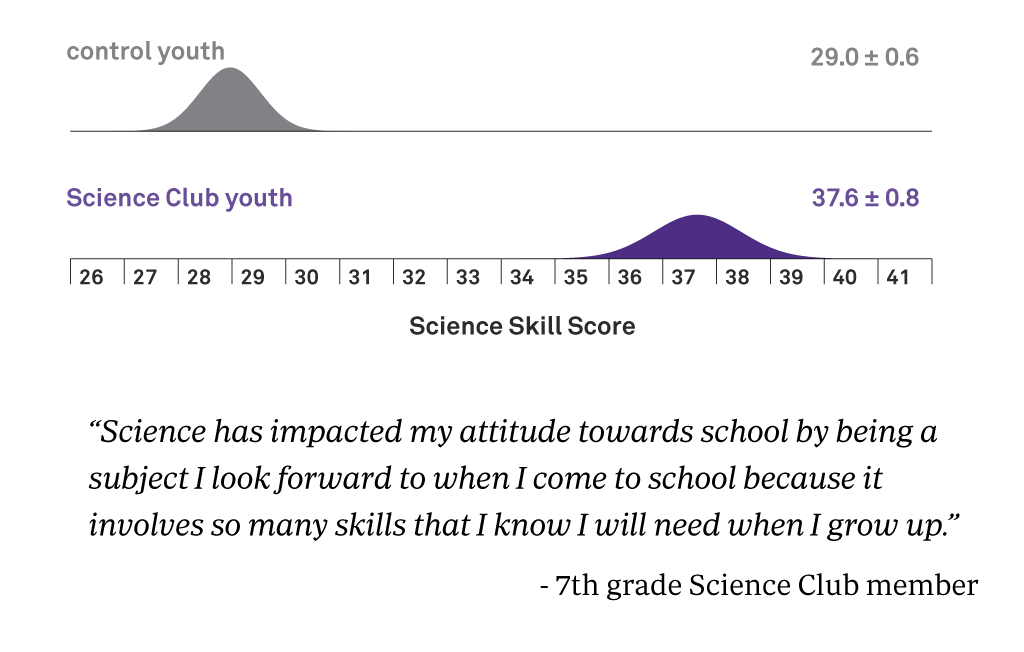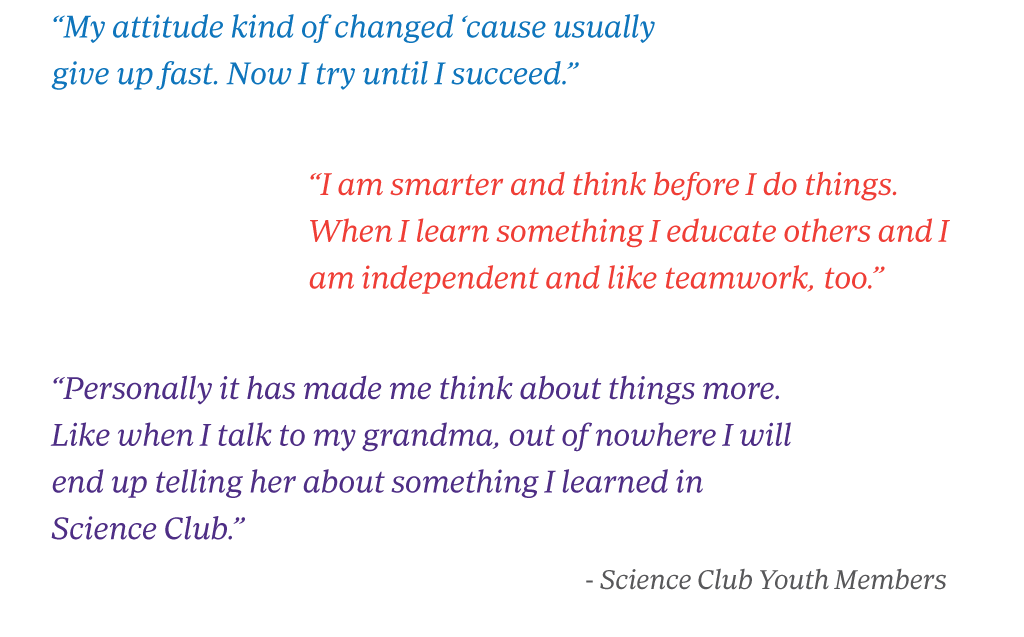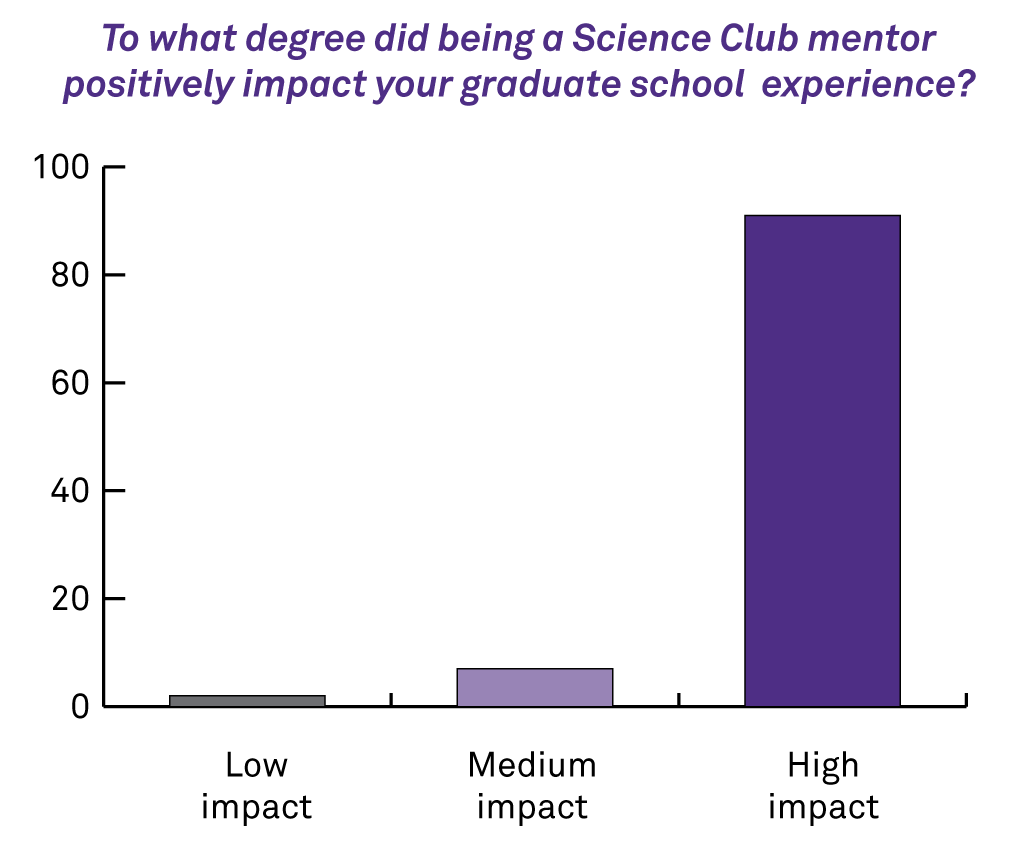Long Term Programs, Lasting Impact
Our programs influence core science skills, attitudes,
and outcomes for youth, teachers & scientists.
Annual hours of hands-on science instruction
Science Club youth members since 2008
Mentors since 2008
RESEARCH & EVALUATION
Our team rigorously measures program related outcomes for both youth and mentors. For youth, this includes learning authentic science skills, the degree to which Science Club shifts youth attitudes and beliefs toward science, and Science Club’s impact on longer-term careers. Mentor outcomes include skills such as teaching, mentoring, and collaboration, shifts in equity mindsets, and the degree to which knowledge gained in Science Club transfers to scientists’ community engagement.
Below are just a few of the impressive results we’ve seen.

Science Club Builds Youth Science Skills
Rather than memorizing science facts, our program focuses on developing the science skills scientists and engineers use every day.
We have done our own rigorously controlled experiments to measure how much these skills change over time. Our reults show show students in engaged in Science Club perform up to 30% higher in measures of skills such as experimental design, data analysis, and making evidence-based conclusions.
These skills are highly relevant to students high school classes and career paths. We couldn’t be prouder of our alums!
Students Gain Confidence in School-Based Classwork and Interpersonal Skills
Science Club helps students see the enjoyment of learning.
Classrooms can be challenging learning spaces. Students don’t always grasp the real-world applications of subjects like science, math, and writing.
Through Science Club’s active learning approach, students take charge of their own learning, directly connecting concepts and skills to their everyday lives.
This translates into stronger interest in school subjects and increased confidence


Mentors Learn Skills and Mindsets that Translate to Careers
A recent study of more than 140 mentor alumni (2008-2019) reveal an incredible, long-term impact.
72% rated their Science Club experience as having a moderate or strong impact on their future career.
Mentors developed, on average, 9 unique skills. These include teaching, mentoring, science communication, working with individuals of diverse cultures and backgrounds.
Additional benefits of mentorship include joining a community of like-minded educators and improved mental health.
What Mentors Have to Say About Science Club
I learned that mentorship sometimes means teaching and sharing knowledge, but sometimes it means giving the student independence to reach these conclusions on their own.
Science Club changed my perception of what exactly a scientist is, who science is for, and who it can be done by. Everyone, everyone, and everyone.
Before Science Club, I was unsure what role I wanted to have in science in the future… I still want to do research, but need to be in a position where I can devote more time to mentoring students and participating in science-related community outreach.
